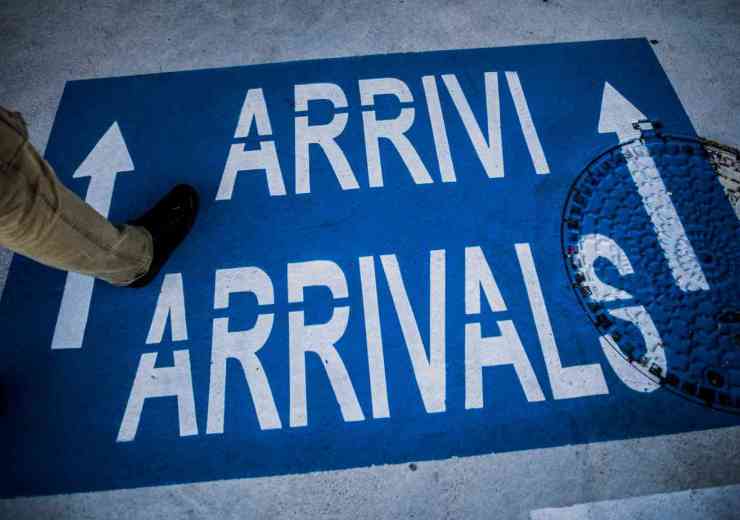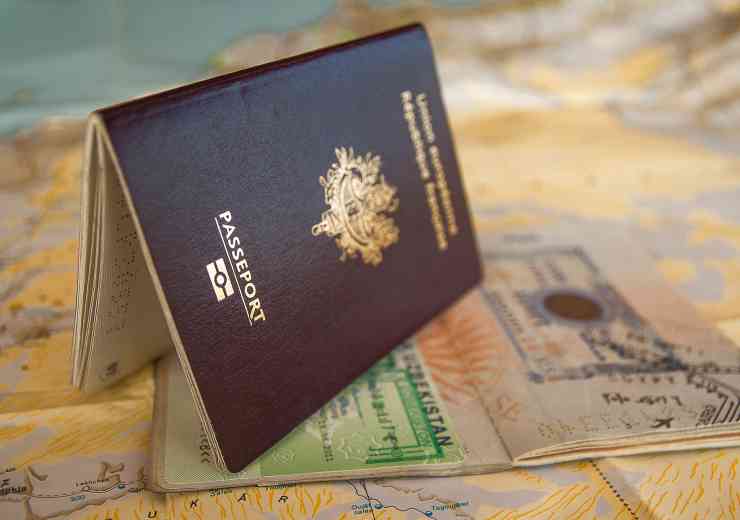The information game

Is imposing ever more stringent checks on passengers really the way to secure national borders against the threat of terrorism? The EU recently announced plans to capture even more passenger information under the Passenger Name Record Directive. But will this initiative really deliver effective counter intelligence when it is just another stand alone information source? What is the point of collecting vast amounts of information throughout a journey, from departure to destination, if there is no way of reconciling this information in real time?
Secure queues
Over the past decade, air passengers have been subjected to ever more stringent security controls. Limits on liquid, requests to remove shoes and belts, and increasingly personal security questions have extended queues and created a stressful travelling environment. In some countries (particularly the US), fingerprints and retina scanning are now standard procedures; while additional delays are being caused by scanning baggage after arrival as well as prior to departure.
The result is the collection of a huge amount of information at every stage of the journey. Airlines record information that extends from passport details to payment card number, travel companions, seat number, onward flight itinerary, meal request and price of ticket; while hotels routinely request passport and address details from customers.
This information collection is increasingly being shared with the respective governments. Under the Passenger Name Record Directive, EU member states will be expected to gather this information from airlines – a move that builds on the Advanced Passenger Information (API) already demanded by the US Customs and Border Protection Agency (CBP) for travel to a large number of countries, including the Caribbean and others. This information includes, full name, gender, date of birth, nationality, country of residence, travel document type (passport) and travel document number.
But does this current model make our borders any more secure? While, in theory, this information will be made available to those investigating criminals, the information is not being used proactively to identify travellers as they enter the airport. The result is that every passenger is subjected to the same stringent security controls and checks – and delays – irrespective of the risks they pose.
Integrated approach
Gathering passenger data is a positive step for securing our borders and preventing terrorism – notwithstanding privacy and sovereignty concerns. However, the current approaches being adopted globally, including the Passenger Name Record and forthcoming UK e-Borders development, appear fundamentally flawed by the lack of integration with other databases.
In almost all national governments, customs, police, immigration and similar agencies all act autonomously with no automatic sharing of information. Contrast this approach to the continued shift towards information sharing across every other aspect of government – from social services to the justice system. It is possible today in the UK, for example, to renew car tax online with real time checking of a vehicle’s MOT and insurance status.
Of course, tracking passengers’ movements across national borders is essential. But surely instead of relying on disparate sources of stand-alone information it is far better to integrate the sources of related data to provide a complete passenger picture. Critically, these integrated data sources should be used to verify the legitimacy of a journey before departure.
What is the value of collecting limited personal data from travellers’ passports in one place, while address details of where passengers are staying in the destination countries are manually collected on arrival and stored elsewhere? There is minimal correlation and no checking of the veracity or legitimacy of the address. The only value is the chance for security agencies to review this information to track passenger movements after the event. Great for reviewing strategy, but no good for proactive, preventative security.
Instead, passport data and precise destination address details should be gathered before departure, verified through integrated criminal systems and stored in such a fashion that relevant countries can access the data when necessary: one set of highly integrated local databases, accessible to authorised governments and agencies, that track and authenticate in advance cross-border journeys and passengers’ identities.
With such an interrelated process, complete pictures of individuals’ current and previous cross-border movements can be constructed in a timely manner. Without such integration, as is the current case globally, the ability to prevent terrorism is thoroughly undermined.
Better solutions
Continually expanding airport queues may provide a perception of safety and security. But with limited cross-agency and real-time information, current processes are flawed. In reality, today’s tedious security demands are forcing 99.999 per cent of passengers to pay for the problems created by just a handful of individuals.
This approach is damaging the economy. Growing numbers of individuals – both business and leisure passengers – are eschewing airline travel; and not just due to the escalating fuel-related costs. The inquisition, time in queues and luggage limits are making the entire process of airline travel increasingly unappealing, at a time when the industry is already struggling to make a profit.
The vast majority of security experts agree there are better ways of delivering border security. With faster first time checks, border security can identify people in a timely manner. But unless governments can move beyond ever-expanding data collection techniques towards true cooperation and collaboration between all vested parties, passengers will continue to bear the brunt of terrorism fears.
Written by Peter Forrest, managing director, DPM Systems

















